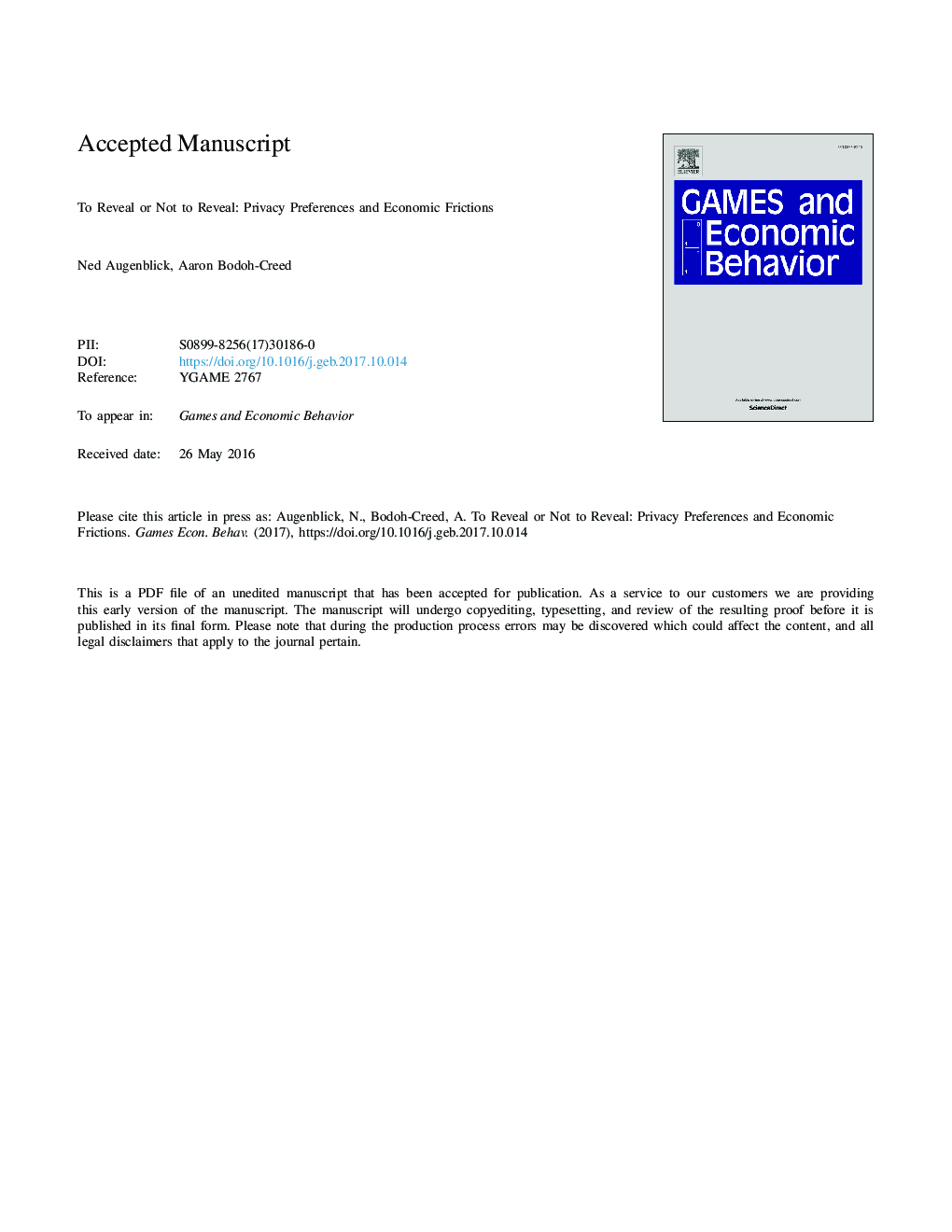| Article ID | Journal | Published Year | Pages | File Type |
|---|---|---|---|---|
| 7352843 | Games and Economic Behavior | 2018 | 28 Pages |
Abstract
We model two agents who wish to determine if their types match, but who also desire to reveal as little information as possible to non-matching types. For example, firms considering a merger must determine the merger's profitability, but would prefer to keep their information private if the deal fails. In the model, agents with different traits reveal information to a potential partner to determine if they share the same type, but face a penalty depending on the accuracy of their partner's posterior beliefs. With limited signaling, there is a universally-preferred dynamic communication protocol in which traits are sequentially revealed depending on the sensitivity of the trait. Interestingly, the rarity of an agent's traits plays no role due to the balance of opposing effects: although revealing a rare trait reveals more information immediately, it also screens more partners from later learning information about other traits.
Related Topics
Social Sciences and Humanities
Economics, Econometrics and Finance
Economics and Econometrics
Authors
Ned Augenblick, Aaron Bodoh-Creed,
